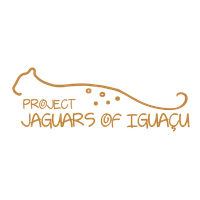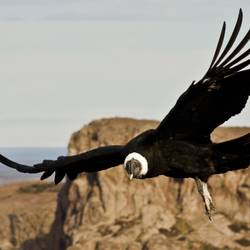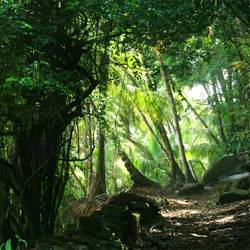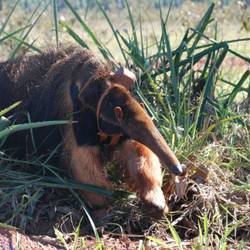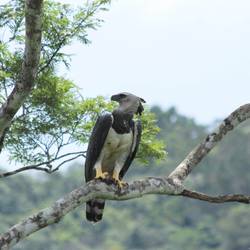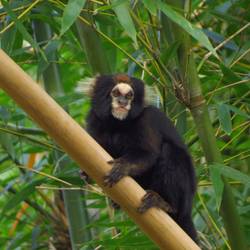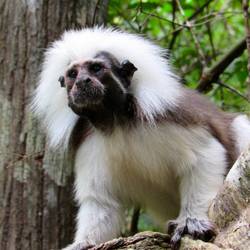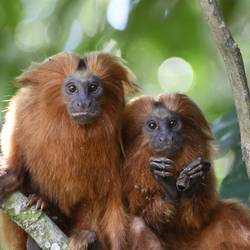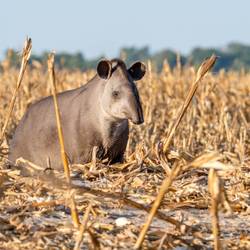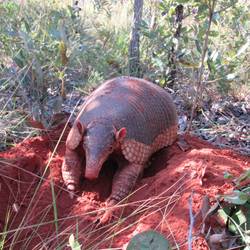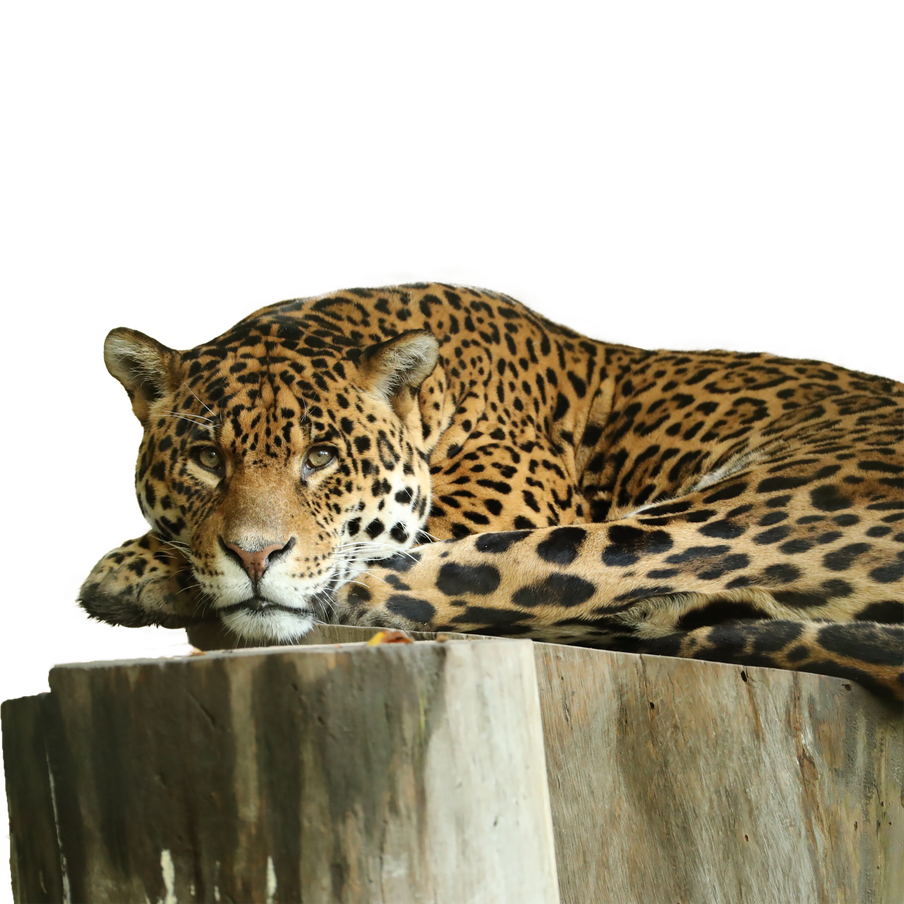
Dirigé par Pró-Carnívoros, le programme de conservation des jaguars s’est donné pour mission d’étudier l’écologie et la biologie de l’espèce, de recenser les individus et d’installer des dispositifs anti-prédation.
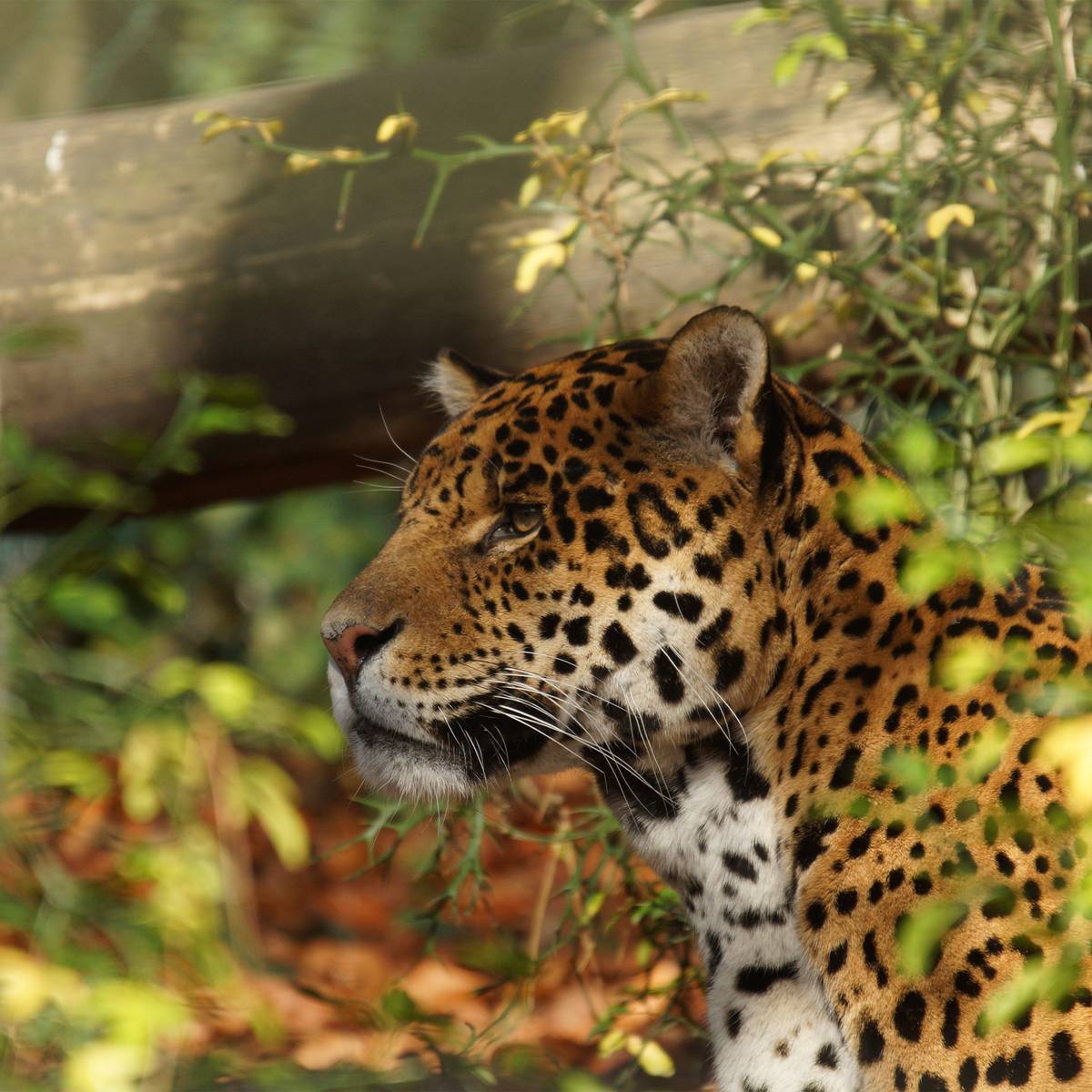
Direction le Parc National d’Iguaçu au Brésil et en Argentine
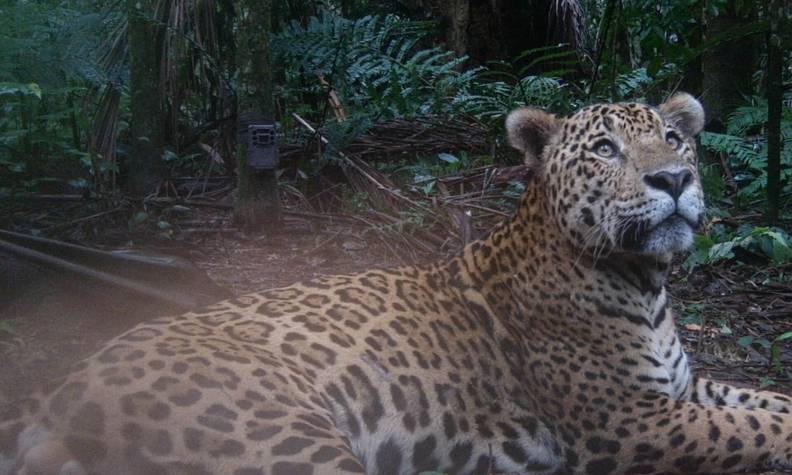
La région du Parc National d’Iguaçu, au Brésil et en Argentine, représente une zone importante pour la conservation de l’espèce.
En 2022, les activités de Pró-Carnívoros ont été divisées en plusieurs domaines : recherche, sensibilisation, coexistence homme/animal, politiques publiques et actions contre le trafic des jaguars.
La région du Parc National d’Iguaçu, au Brésil et en Argentine, représente une zone importante pour la conservation de l’espèce. Depuis plusieurs années, le jaguar fait l’objet de programmes de protection pour tenter d’enrayer le déclin des populations au Brésil et en Argentine. Beauval Nature soutient chaque année l’Institut Pró-Carnívoros qui gère plusieurs projets sur les carnivores en Amérique du Sud, dont le projet Jaguars d’Iguaçu. Beauval Nature couvre intégralement le salaire de la coordinatrice du projet depuis 2021.
Surveillance des corridors : 5 espèces de félins identifiées
La surveillance des corridors écologiques situés à l’extérieur du Parc National s’est poursuivie en 2022 afin d’évaluer leur utilisation par les grands félins. 5 espèces de félins utilisant le corridor de Santa Maria ont été identifiées : ocelot, puma, margay, jaguarondi, et oncille du Sud.
Recensement de la population de jaguars au Brésil et en Argentine
Tous les deux ans, un recensement de la population des jaguars est effectué. Le dernier comptage datant de 2020, celui-ci a été actualisé en 2022. Pour cela, 74 stations de caméras-pièges ont été installées dans la partie brésilienne du Parc National d’Iguaçu (PNI). L’association argentine Proyecto Yaguareté (programme de conservation des jaguars en Argentine) a effectué un recensement parallèle dans la partie argentine du PNI. Au total : 379 enregistrements ont détecté des jaguars. Il s’agissait de 26 adultes (11 mâles et 15 femelles) dont 11 n’avaient jamais été observés et de 9 petits.
Par ailleurs, 150 échantillons de fèces de jaguars et de pumas ont été transmis à une université partenaire du programme de conservation afin d’étudier le contenu du régime alimentaire et d’effectuer l’analyse isotopique (comparaison des proportions des isotopes dans un échantillon). L’analyse isotopique aide les scientifiques à comprendre les propriétés, les origines et les processus impliqués dans les substances et les éléments qu’ils étudient.
Coexistence entre les grands félins et les humains
Le projet a une forte composante de réduction des conflits entre les humains et les grands félins. La stratégie est d’être continuellement proche des communautés, en faisant des visites périodiques dans les propriétés autour du Parc National et dans les 14 villes qui entourent le parc. Dès qu’une prédation ou une observation de grands félins est signalée, l’équipe se rend sur place pour évaluer la situation, essayer d’identifier le prédateur, mettre en place des mesures préventives et fournir des orientations concernant les meilleures pratiques de gestion.
Actions contre le trafic d’animaux sauvages
La lutte contre le trafic d’animaux sauvages, dont le jaguar, passe notamment par la formation des autorités à la détection et à l’identification des espèces. À cet effet, en 2022, les équipes de Pró-Carnívoros ont créé un guide d’identification du jaguar et dispensé plusieurs formations au Brésil et en Argentine auprès de la police fédérale, des équipes de sécurité aéroportuaires ou encore de la gendarmerie.
Rédaction d’un plan national d’actions pour le Paraná
Pró-Carnívoros a travaillé en étroite collaboration avec le gouvernement du Paraná et leurs partenaires respectifs afin de faire voter une loi en faveur de la protection des jaguars. Celle-ci prévoit en effet la création d’un plan d’actions pour cet état en 2023. Le Paraná sera le premier état du Brésil à disposer d’un plan d’actions en faveur de la conservation des jaguars.
Le programme de conservation des jaguars se situe au Brésil.
Quelques caractéristiques sur l’espèce
Le jaguar (Panthera onca) est le plus grand des félins d’Amérique, le troisième plus grand du monde par sa taille. La coloration de son pelage varie du jaune clair à l’orange en passant par le brun-jaune-roux. Le dessous du ventre est blanc et crème. Le nom jaguar vient du mot amérindien « yaguara » qui signifie « celui qui tue d’un bond ». Sa puissance lui permet de s’attaquer à des proies trois à quatre fois plus grosses que lui. Son régime alimentaire, carnivore, est varié : pécaris, tapirs, tatous, cerfs, tortues, caïmans, serpents, poissons, gros rongeurs…
Se déplaçant avec souplesse et rapidité, le félin est aussi à l’aise sur terre, dans les arbres que dans l’eau ! Il attaque souvent par surprise et tue ses proies grâce à ses canines de 3 cm de long. Avec sa mâchoire surpuissante, il exerce une pression de plusieurs centaines de kilos, l’une des morsures les plus puissantes du règne animal (par rapport à la taille de son crâne). Solitaires, mâles et femelles ne se rencontrent que pour les accouplements qui ont lieu toute l’année. Après une gestation d’une centaine de jours, la femelle donne naissance à une portée de 1 à 4 petits. Les jeunes sont sevrés vers 5 à 6 mois et indépendants entre 16 mois et 2 ans.
Menaces et statut de conservation
Une population en déclin en raison de nombreuses menaces.
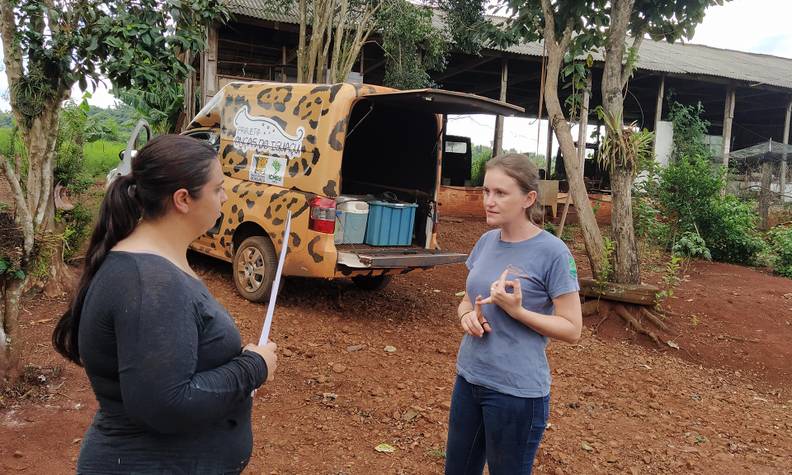
Le jaguar (Panthera onca) est une espèce classée « quasi-menacée » par l’UICN (Union Internationale pour la Conservation de la Nature). Quelles sont les menaces pesant sur le jaguar ? Il souffre tout d’abord de la perte et de la fragmentation de son habitat, ce qui diminue les proies disponibles et isole les sous-populations. De plus, les corridors écologiques permettant sa dispersion sont souvent situés en dehors des aires protégées. Par ailleurs, le jaguar est chassé pour obtenir des trophées (sa peau est toujours très recherchée) ou par les éleveurs de bétail qui cherchent à protéger leurs troupeaux. La résolution des conflits Homme / Animal est primordiale pour la survie de l’espèce. Le Parc National d’Iguaçu, au Brésil et en Argentine, représente une zone importante de conservation des jaguars.
Indira, femelle jaguar, suivie par collier GPS
En 2022, les équipes se sont concentrées sur une femelle (Indira), qui sortait souvent du parc national et s’attaquait aux animaux domestiques (11 animaux prédatés par celle-ci en 2022), ce qui menaçait sa sécurité. Grâce au suivi, les équipes ont remarqué que son domaine vital diminuait considérablement lorsqu’elle avait un petit, passant de 224 km² à 39 km².
Une femelle et son petit en Argentine
5 infos clés sur le jaguar
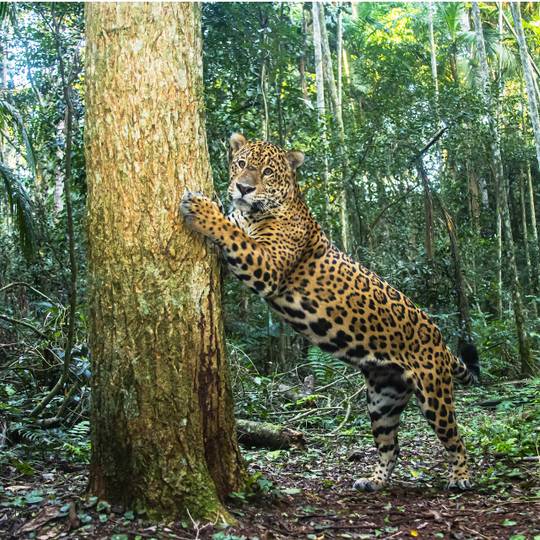
5 infos clés sur le jaguar
La gestation dure entre 3 mois et 3 mois et demi.
La portée compte 1 à 4 petits.
Les jaguars sont solitaires.
Les mâles pèsent en moyenne 136 kg, les femelles 100 kg.
Les jaguars vivent dans les forêts tropicales, les milieux humides et arides, les savanes, mangroves.
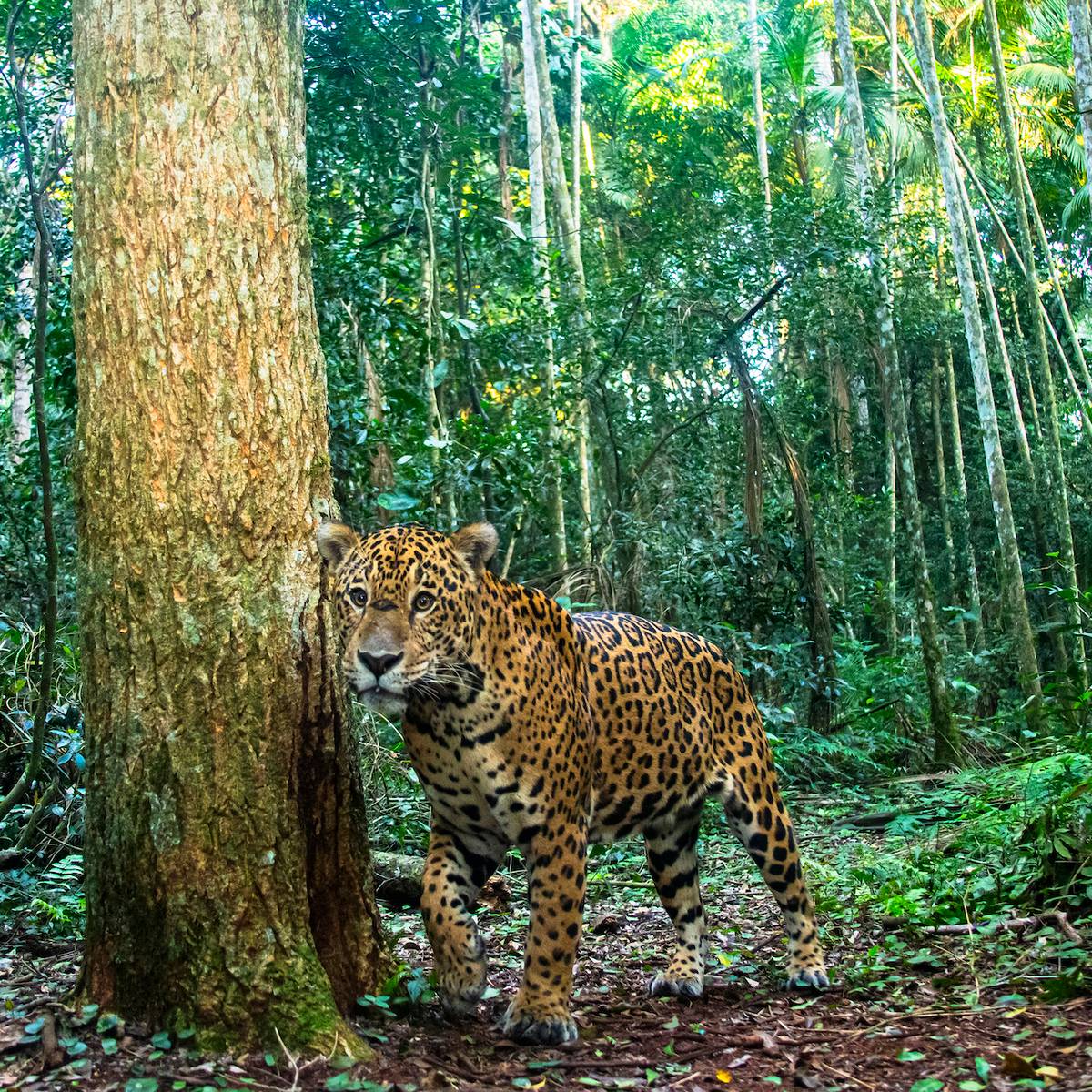
Missions et actions de protection
1 - Étudier l’écologie et la biologie des jaguars
Plusieurs moyens technologiques sont utilisés afin d’étudier l’écologie et la biologie des jaguars. Par exemple, le recensement de l’espèce au sein du Parc National d’Iguaçu est effectué à l’aide de caméras-pièges. Aussi, des individus adultes sont suivis par collier GPS.
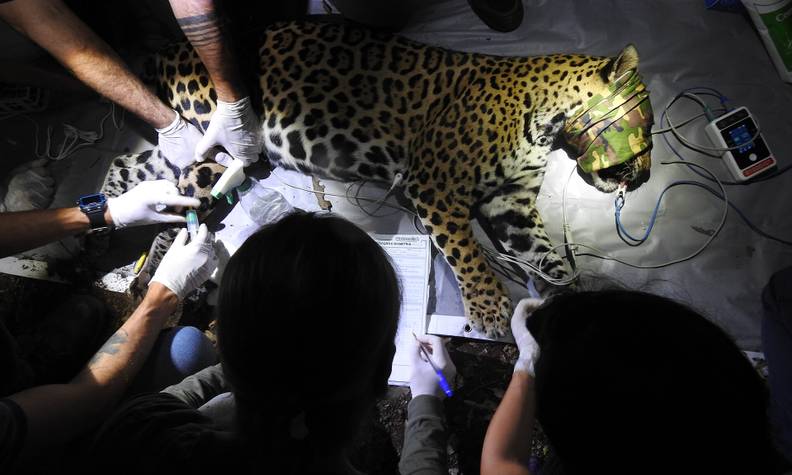
2 - Suivre les corridors en dehors du Parc National
Afin de documenter leur utilisation par les grands félins de la région, la surveillance des corridors situés à l’extérieur du Parc National s’est poursuivie en 2022. Les corridors écologiques assurent des connexions entre des réservoirs de biodiversité, offrant aux espèces des conditions favorables à leur déplacement.
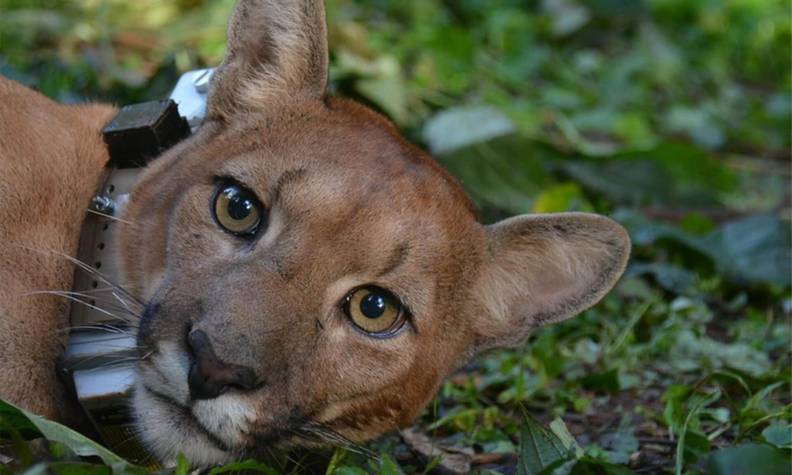
3 - Distribuer et installer des dispositifs anti-prédation
En 2022, 366 visites de 94 propriétés ont été réalisées dans 14 villes autour du Parc National. Plus de 70 dispositifs anti-prédation (dispositifs lumineux, cloches pour vaches, etc…) ont été installés dans 15 propriétés. 31 cas de prédation ont été dénombrés en 2022 autour du Parc National dont 22 par des jaguars.
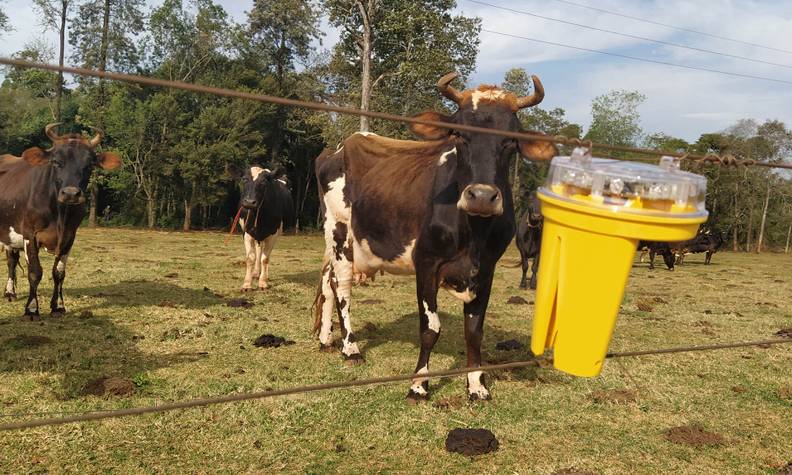
Soutenez l’association et ce programme !
Participer à la préservation des espèces animales à travers le monde. L’argent confié à Beauval Nature sera reversé à l’un des programmes de conservation et de recherche que nous soutenons. Vos dons et parrainages sont déductibles à hauteur de 66% des impôts.
Un programme géré par Pró-Carnívoros et soutenu par Beauval Nature
